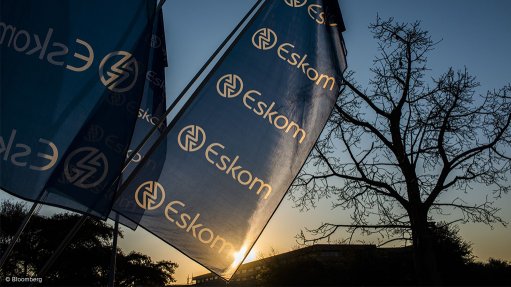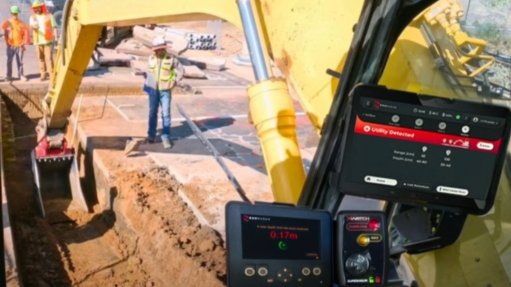Ramaphosa touts progress as G20 faces boycotts, scepticism
As South Africa hosts the G20 leadership summit this week, President Cyril Ramaphosa has positioned the moment as evidence of national progress. Yet the broader economic picture remains mixed, with many of the country’s underlying structural problems persisting despite pockets of improvement.
Ramaphosa’s upbeat public messaging has been somewhat undermined by the fact that the leaders from several of the world’s leading economies have declined to attend the G20, including US President Donald Trump, Chinese President Xi Jinping, Russian President Vladimir Putin, Mexican President Claudia Sheinbaum Pardo and Argentinian President Javier Milei. Japanese Prime Minister Sanae Takaichi’s attendance also remains uncertain.
The stated reasons for their absence vary, but chief among them is Trump’s vocal criticism of the South African government’s perpetuation of controversial race-based policies and the Expropriation Act, which enables the State to expropriate citizens’ property for nil compensation, among other issues.
“While the G20 takes place amid higher geopolitical tensions than we would have liked, South African hosts have managed this as well as could be expected. The Trump administration has said it will not send a delegation.
“This is unfortunate, particularly as the US will be chairing the G20 next year. But it also provides a stark illustration to the political leaders who will be attending of why we need to act to protect the rules-based trading system that is key to international prosperity,” Business Leadership South Africa (BLSA) CEO Busisiwe Mavuso commented in her latest weekly newsletter, published on November 17.
Meanwhile, the US has made it clear that it would oppose any statement beyond the chair’s statement, marking the first time since the G20’s inception in 2008 that a consensus leaders’ declaration will not be issued.
Running parallel to the G20 was the B20 – the business forum for engaging with the G20, which kicked off in March – which BLSA and Business Unity South Africa had jointly chaired. Since then, eight task teams, each headed by a senior South African business leader, had developed detailed recommendations to feed into the G20 process, Mavuso explained.
She noted that the B20 had developed 30 recommendations across the task teams. These covered areas such as digital transformation, employment, education, improving the global trade environment, infrastructure finance and debt management, among others.
Mavuso said the recommendations focused on transitioning to clean energy, agricultural innovation and industrial growth in Africa, while several addressed disruptions to trade which had been particularly damaging to South Africa – especially the diplomatic fallout with the US, which had led to Ramaphosa advocating for new trade and investment deals for Africa, as well as climate-responsive trade.
As the G20 leadership summit launches this week, Ramaphosa has touted recent economic data as evidence of South Africa’s emerging recovery, such as Statistics South Africa’s report of a slight decline in the official unemployment rate to 31.9% in the third quarter, down from 33.2% previously. About 250 000 additional people were recorded as employed, with construction accounting for about 130 000 of these jobs.
While any improvement is welcome, South Africa’s unemployment rate remains among the highest globally and the gains come off an extremely low base after years of stagnation and job losses.
Meanwhile, the Medium-Term Budget Policy Statement (MTBPS), delivered by Finance Minister Enoch Godongwana on November 12, projected another primary budget surplus, attributed to higher revenue collection and restrained spending, excluding debt servicing costs.
“We have a government that has regained control of the nation's finances and turned the trajectory toward sustainable, growth-supporting fiscal management. The MTBPS last week showed continued fiscal discipline, with Treasury on track to deliver another primary surplus despite weak growth,” Mavuso said.
However, despite this being framed as evidence of prudent financial management, the country still faces a heavy debt burden accumulated over more than a decade of fiscal deterioration, corruption scandals and bailouts for failing State-owned enterprises. The pace at which debt can realistically be reduced remains uncertain.
Last week’s sovereign credit upgrade from S&P Global from BB- to BB was touted as a major milestone, marking the first such improvement in nearly 20 years.
“We have a financial system that is appropriately vigilant about abuse, putting us back in good standing with the Financial Action Task Force (FATF). Our exit from the FATF grey list in October was recognition of the work done to strengthen our anti-money laundering and counter-terrorism financing frameworks,” Mavuso said.
However, while an upgrade may modestly reduce borrowing costs, it does not erase the long-running governance failures that contributed to prior downgrades. S&P’s reference to Eskom’s “improved performance” and “structural reform momentum” reflects progress relative to the utility’s recent collapse, not a full recovery of the power system or the wider economy.
“S&P does point to clear risks, including the still high debt levels, the stability of the Government of National Unity, US-imposed tariffs, municipal debt to Eskom and the persistent low-growth story. But despite these reservations, S&P is maintaining a positive outlook, showing it believes the risks are to the upside,” Mavuso noted.
One of the positive highlights is Operation Vulindlela, launched in 2020 to accelerate structural reforms in logistics, energy, immigration and other areas.
Some improvements were noted at South Africa’s ports, along with steps toward private-sector access to the national freight rail network, which are under way.
The energy sector has also stabilised somewhat owing to increased private generation and temporary relief in loadshedding, although Eskom’s long-term viability remains unclear and the transition to renewables has been uneven.
“It is important to note that, while this upgrade is welcome progress, South Africa remains below investment grade. The BB rating still places us in subinvestment grade territory, two notches below the BBB- threshold that would restore investment grade status. Achieving investment grade should be our clear focus,” Mavuso said.
Ramaphosa pointed to new modelling from the Bureau of Economic Research suggesting that, if fully implemented, Operation Vulindlela and other reforms could potentially raise long-term economic growth by up to 3.5%. However, this would only be possible if sustained political will, implementation capacity and institutional stability are all present.
“The challenge for all of us is to deliver on the upside that S&P notes is possible, and to pursue the reforms that will get us to investment grade. Business must accelerate investment in response to the improved infrastructure and regulatory environment.”
“Government must maintain reform momentum, concluding Eskom’s unbundling, bringing in private investors into the logistics system, and implementing the reforms needed to improve local government delivery. Neither can succeed without the other. This is a partnership that requires sustained commitment from both sides,” Mavuso noted.
While Ramaphosa cited global shocks such as the pandemic, the energy crisis and shifting trade conditions as key obstacles, many have argued that South Africa’s most severe economic setbacks stem from years of corruption, mismanagement and State capture.
Despite some recent gains, many core problems, such as failing municipalities, unstable electricity supply, weak public administration, low investor confidence and inadequate service delivery remain persistent in many parts of the country.
Government credited the partnerships between the public and private sectors, labour and civil society for recent improvements – collaborations largely born out of necessity after institutions deteriorated to crisis levels.
Nonetheless, Ramaphosa said government intended to build on the current momentum to drive inclusive growth, job creation and better living conditions.
“The foundations have been laid through difficult reforms and disciplined fiscal management. Now we must build on them with urgency and determination, keeping our eyes firmly on the prize of investment grade status,” Mavuso said.
Article Enquiry
Email Article
Save Article
Feedback
To advertise email advertising@creamermedia.co.za or click here
Press Office
Announcements
What's On
Subscribe to improve your user experience...
Option 1 (equivalent of R125 a month):
Receive a weekly copy of Creamer Media's Engineering News & Mining Weekly magazine
(print copy for those in South Africa and e-magazine for those outside of South Africa)
Receive daily email newsletters
Access to full search results
Access archive of magazine back copies
Access to Projects in Progress
Access to ONE Research Report of your choice in PDF format
Option 2 (equivalent of R375 a month):
All benefits from Option 1
PLUS
Access to Creamer Media's Research Channel Africa for ALL Research Reports, in PDF format, on various industrial and mining sectors
including Electricity; Water; Energy Transition; Hydrogen; Roads, Rail and Ports; Coal; Gold; Platinum; Battery Metals; etc.
Already a subscriber?
Forgotten your password?
Receive weekly copy of Creamer Media's Engineering News & Mining Weekly magazine (print copy for those in South Africa and e-magazine for those outside of South Africa)
➕
Recieve daily email newsletters
➕
Access to full search results
➕
Access archive of magazine back copies
➕
Access to Projects in Progress
➕
Access to ONE Research Report of your choice in PDF format
RESEARCH CHANNEL AFRICA
R4500 (equivalent of R375 a month)
SUBSCRIBEAll benefits from Option 1
➕
Access to Creamer Media's Research Channel Africa for ALL Research Reports on various industrial and mining sectors, in PDF format, including on:
Electricity
➕
Water
➕
Energy Transition
➕
Hydrogen
➕
Roads, Rail and Ports
➕
Coal
➕
Gold
➕
Platinum
➕
Battery Metals
➕
etc.
Receive all benefits from Option 1 or Option 2 delivered to numerous people at your company
➕
Multiple User names and Passwords for simultaneous log-ins
➕
Intranet integration access to all in your organisation




















